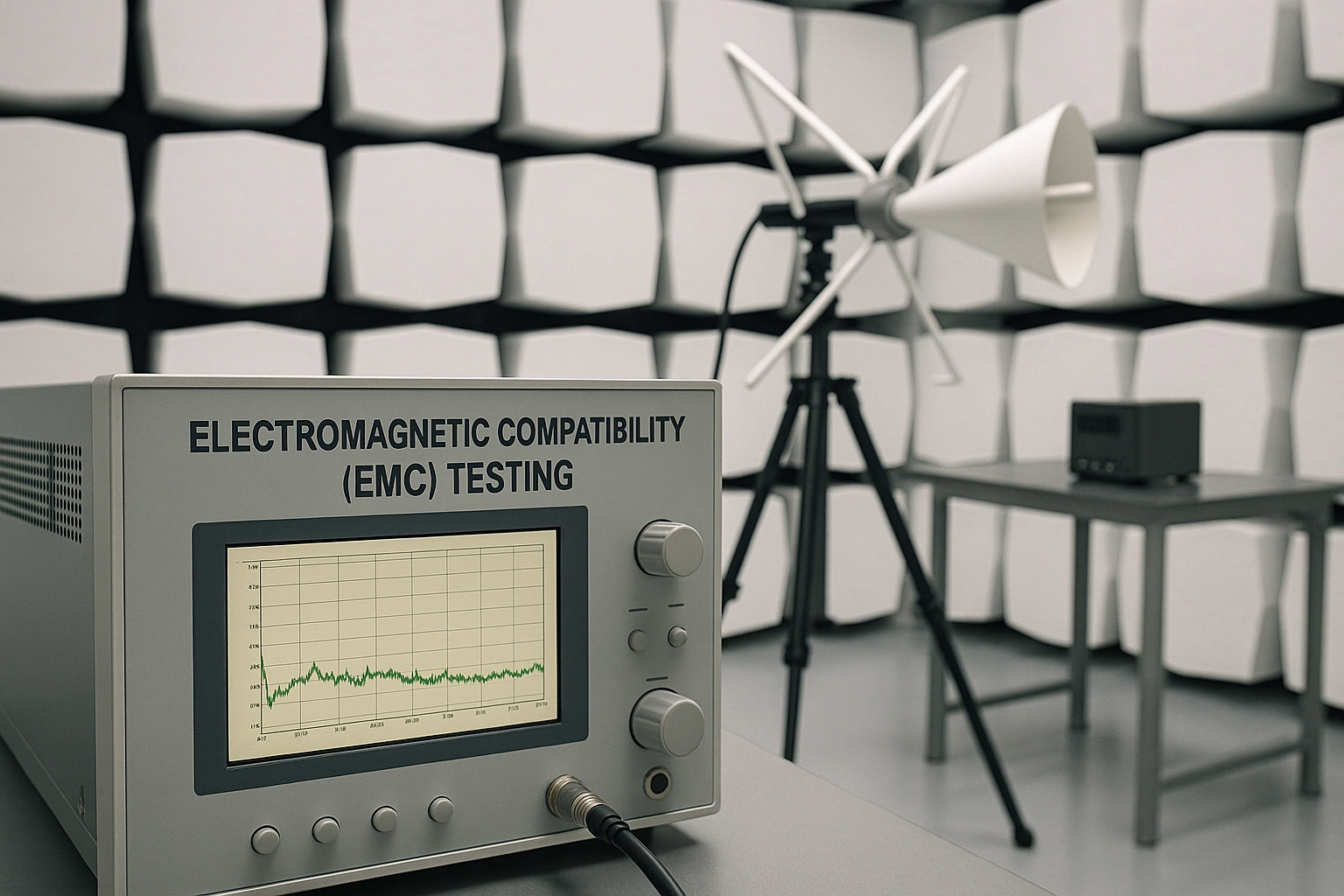IEC 63330 EMC Short Circuit Immunity Test for Vehicles
The IEC 63330 standard is a critical component of electromagnetic compatibility (EMC) testing, specifically designed to evaluate the short circuit immunity of vehicles. This test ensures that electronic systems within automotive devices function correctly and without interference when subjected to transient voltage surges or current spikes similar to those encountered during real-world driving conditions.
The purpose of this test is to assess the robustness of an automotive system's ability to continue operating normally despite being exposed to a short circuit event. The standard covers various aspects, including electrical systems such as powertrain control units, infotainment systems, and other electronic components that are integral to modern vehicles.
The IEC 63330 test is particularly important in the context of automotive safety and compliance with international standards. By ensuring short circuit immunity, it helps prevent potential malfunctions that could lead to hazardous situations or system failures. This not only enhances vehicle reliability but also ensures adherence to regulatory requirements set by organizations like the International Organization for Standardization (ISO) and the European Union.
The test involves exposing the vehicle's electrical systems to controlled short circuit conditions. The duration, frequency, and intensity of these events are carefully specified in accordance with IEC 63330 to simulate realistic scenarios that may occur during driving. This approach ensures that any issues are identified early in the development process, allowing manufacturers to address them before vehicles reach the market.
During the test, various parameters such as voltage levels, current spikes, and waveform shapes are meticulously monitored using specialized equipment. The goal is to determine how well the vehicle's electrical systems handle these transient conditions without experiencing performance degradation or failure. This includes evaluating both passive components like capacitors and inductors and active components such as microcontrollers.
The results of this test provide valuable insights into the overall robustness of an automotive system's design. By identifying weak points early on, manufacturers can implement necessary improvements, leading to more reliable and safer vehicles. Additionally, compliance with IEC 63330 helps ensure that products meet stringent safety standards, thereby fostering trust among consumers.
In summary, the IEC 63330 EMC Short Circuit Immunity Test is an essential process for ensuring that automotive systems function reliably under challenging conditions. Its implementation contributes significantly to enhancing vehicle safety and compliance with international regulations. As technology continues to evolve, this test remains a vital tool in maintaining high standards within the industry.
Benefits
The IEC 63330 EMC Short Circuit Immunity Test offers numerous advantages for automotive manufacturers and developers:
- Enhanced Safety: Ensures that electronic systems perform reliably during potential short circuit events, reducing the risk of accidents.
- Compliance Assurance: Helps meet regulatory requirements set by various international bodies, including ISO and EU directives.
- Improved Reliability: Identifies weak points in system design early on, allowing for targeted improvements before mass production.
- Increased Consumer Trust: Demonstrates a commitment to product safety and quality, enhancing brand reputation.
- Cost Efficiency: By catching issues early in the development phase, it reduces the cost of redesigning or recalling products later.
- Competitive Advantage: Demonstrates leadership in adhering to high-quality standards, differentiating from competitors who may not meet these stringent criteria.
- Longevity and Durability: Ensures that components can withstand harsh environmental conditions without failing prematurely.
These benefits collectively contribute to creating safer, more reliable vehicles that are better equipped to handle the demands of modern driving environments.
Customer Impact and Satisfaction
The IEC 63330 EMC Short Circuit Immunity Test has a direct impact on customer satisfaction by enhancing several key aspects:
- Better Driving Experience: Vehicles that pass this test provide a smoother, more consistent driving experience due to reliable electronic systems.
- Increased Safety: By ensuring robust short circuit immunity, the test helps prevent potential hazards associated with electrical malfunctions.
- Eco-Friendly Performance: Reliable systems contribute to efficient energy management within vehicles, reducing fuel consumption and emissions.
- Enhanced Durability: Components that withstand rigorous testing tend to have longer lifespans, leading to lower maintenance costs for customers over time.
- Better Customer Trust: Compliance with international standards builds confidence among consumers regarding the quality and safety of automotive products.
- Increased Value Perception: Vehicles meeting these stringent tests are perceived as higher quality, potentially commanding premium prices in the market.
- Extended Warranty Periods: Reliable systems often come with extended warranty options, offering customers greater peace of mind.
All these factors combined contribute to a more satisfying ownership experience for customers, ultimately leading to higher levels of customer satisfaction and loyalty.
International Acceptance and Recognition
The IEC 63330 EMC Short Circuit Immunity Test enjoys widespread acceptance and recognition across the global automotive industry. Its international standardization ensures that the test is consistent worldwide, facilitating seamless trade between countries with varying regulatory requirements.
Achieving compliance with this standard demonstrates a commitment to adhering to the highest quality standards, which is highly valued by both manufacturers and customers alike. Many major automotive brands incorporate IEC 63330 into their development processes, ensuring that all new models meet these stringent criteria before entering production.
International recognition of the test also fosters collaboration between different regions and countries, promoting a unified approach to vehicle safety and quality assurance. This collaborative effort not only enhances global standards but also streamlines regulatory compliance for manufacturers operating in multiple jurisdictions.
In summary, the IEC 63330 EMC Short Circuit Immunity Test plays a crucial role in maintaining consistent quality across international markets, contributing significantly to the advancement of automotive technology and safety worldwide.





